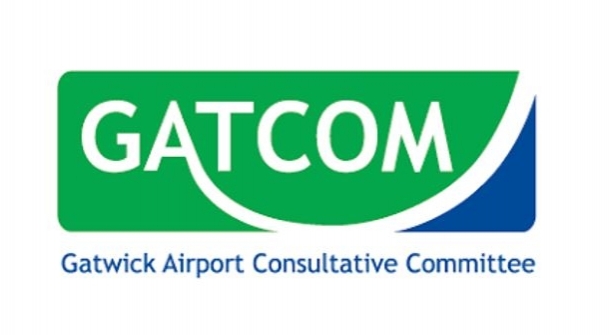- The Forum Of Communication Skills Ali Syed
- Communication Skills Definition
- How To Improve Communication Skills
Communication skills are very important for everyone in today’s age. They say, “The skill of effective communication is the key to success.” Instead, the ability to exhibit effective communication skills in the workplace, especially in a discussion with your superiors and colleagues, is the key to impress almost everyone.
The Forum Of Communication Skills Ali Syed
Refugee Forum (IRF) has organised Refugee Week in Islington from 15-17th June 2015. Here is a report of the three events held during Refugee Week, the main issues raised by the refugee organisations in relation to their own tremendous and tireless work to support their. How to master communication skills Introduction As kids, almost all of us played the game of “whispering in the ear”. One of the team members used to initiate the game by whispering something in the ear of next person who used to pass it on to the next and so on.
Today, employees of an organization must possess communication skills in English. This is irrespective of the communication media, i.e. in-person or over a phone call, email, or a social media channel. Not to forget, having excellent communication skills is the key to getting hired, landing promotions over time, and becoming successful in life.
So, the question is, how to improve communication skills at work?
The first step on your way to becoming good at verbal and written English is learning the basics. Let us help you with it.
Communication Skills: Definition
“The ability to convey information effectively and efficiently”
“Business managers with good verbal, non-verbal and written communication skills facilitate the sharing of information between people within a company for its commercial benefit, says Business Dictionary.
Types of Communication Skills

Understanding the importance of communication skills is pretty important not only for a manager and other key people in an organization but also for employees. This is because the mutual interaction is a highly sought-after skill in various industries. So, these are the communication skills employers look for in employees
1. Verbal Communication Skills
Every corporate aspirant must possess good verbal communication skills, especially if you work or wish to work in a marketing or sales company, as they directly deal with the public. You must be clear with your words, which also means you should neither use flowery language to impress others nor be just bland at the same time. If you are too talkative, chances are that many people will not like you, which can affect your sales targets eventually.
Image Source: www.mindpowerhypnosis.in
By improving your verbal communication skills, you can form a strong bond with your colleagues and maintain a huge network of contacts. Besides, it will be easier for you to convert your leads
If you are a member of a group of consultants, then make sure to pay adequate attention to this particular communication skill of yours, as you need to constantly meet and communicate with people almost every day.
2. Nonverbal Communication Skills
This particular type of communication skills includes your body language, facial expressions, gestures, and postures. Since nonverbal communication sets the tone of your conversation, you may end up undermining the message you intend to deliver, in case you are not good at this very type of communication.
Image Source: Pinterest.com
For instance, if you slouch and shrink your back in your chair during a meeting, you seem under-confident to others and they may even doubt your verbal communication strengths. Likewise, the act of leaning over other employee’s desk and invading their personal space might turn a friendly conversation into an aggressive argument.
3. Written Communication Skills
Written communication skills are also very important for you, irrespective of the level of your job. These skills reflect how good you are as a thinker and how effectively you put your thoughts into words. Think of a scenario wherein you need to communicate complex information like statistics to someone who is new to the process.
Image Source: www.northeastern.edu

You might not be able to convey the whole information verbally and need to explain the stats using some charts and figures. Written communication turns out to be your savior and becomes a document that can also be referred to later. Such documents are very helpful and can work as effective notes given in the workplace.
Communication Skills Definition
4. Interpersonal Skills
Interpersonal communication skills refer to one-to-one communication between two or more persons. In fact, non-verbal communication or gestures (body language) plays a key role in helping one person understand another.
Image Source: study.com
These skills also portray how effectively you talk to another person in your organization, which also affects the way they respond to you.
Importance of Communication Skills
Employers always look for the talent that stands out. So, if an organization is hiring for marketing professionals, the recruiter must be looking for strong communication skills in candidates. These can be either verbal alone or the entire set. You are likely the candidate they are looking for if you possess the entire set of communication skills as mentioned above.
According to a survey including 1000 employers, organizations that recruit from business schools look for certain qualities and communication skills top the list of abilities sought after. In the words of a recruiter from a US-based production and service company, “Everyone coming out of business school seems to have the technological familiarity we require. Soft skills—like communications and people skills—tend to make the difference.” (Reference: mba.com)
Image Credits: mba.com
Organizations are spending billions annually on their business and employees; in return, they expect them to have strong communications skills as they all need to communicate with one another over emails, writing reports and interacting with clients. Undoubtedly, week communication skills in such a scenario can prove to be a major hindrance to the growth of the business.
Effective Communication Skills Signify Leadership Potential
While hiring graduates from business schools, recruiters don’t just aim at filling the open positions, they also want to build the leadership pipeline. Besides the technical skills a person at the managerial level should possess, recruiters also seek strong communications skills in their hires. They look for managers who have the potential to become strong leaders and inspire others and keep their team engaged as well as motivated.
Also Read: 3 Tips on Business Communication Skills to Get More Clients
So, it is prudent to develop and improve your communication skills, including your abilities to listen, write, present, and negotiate. On your way to improvement, you should seek out feedback and practice the areas in which you need to improve, as the effects of your practice significantly improve when you know what and where to focus on.
Final Words!
Always remember that the way you communicate and present yourself is what makes you stand out. Be ready for the feedback and to improve and advance in your career as well as in life.
So how do you like it? Do you have these skills in you? Let us know in the comment section below.
OFSTED, England
Paper presented at the 37th Annual SCUTREA Conference, 3-5 July 2007, Queen's University Belfast, Northern Ireland
Introduction
How To Improve Communication Skills
The word ‘community’ is a loaded one, surrounded by value judgements and linked to theories of social capital. Within the UK, and indeed most other countries, it is a word which, like ‘family’, is taken usually without question to be a ‘good thing’, with the loss of ‘community’ and of ‘family’ being mourned as indicators of societal fragmentation and that ‘things ain’t what they used to be’. Both ‘community’ and ‘family’ imply feelings of ‘belonging’, but without a critical awareness that ‘belonging’ to these social institutions is rarely a matter of choice, and may not be experienced by those inside them as a ‘good thing’.

It is also difficult to avoid the trap of thinking of ‘community’ in terms of homogeneity. Different social groups are represented within all communities, with differing needs and issues. And those groups are in turn made up of individuals, each with his or her own history and circumstances.
